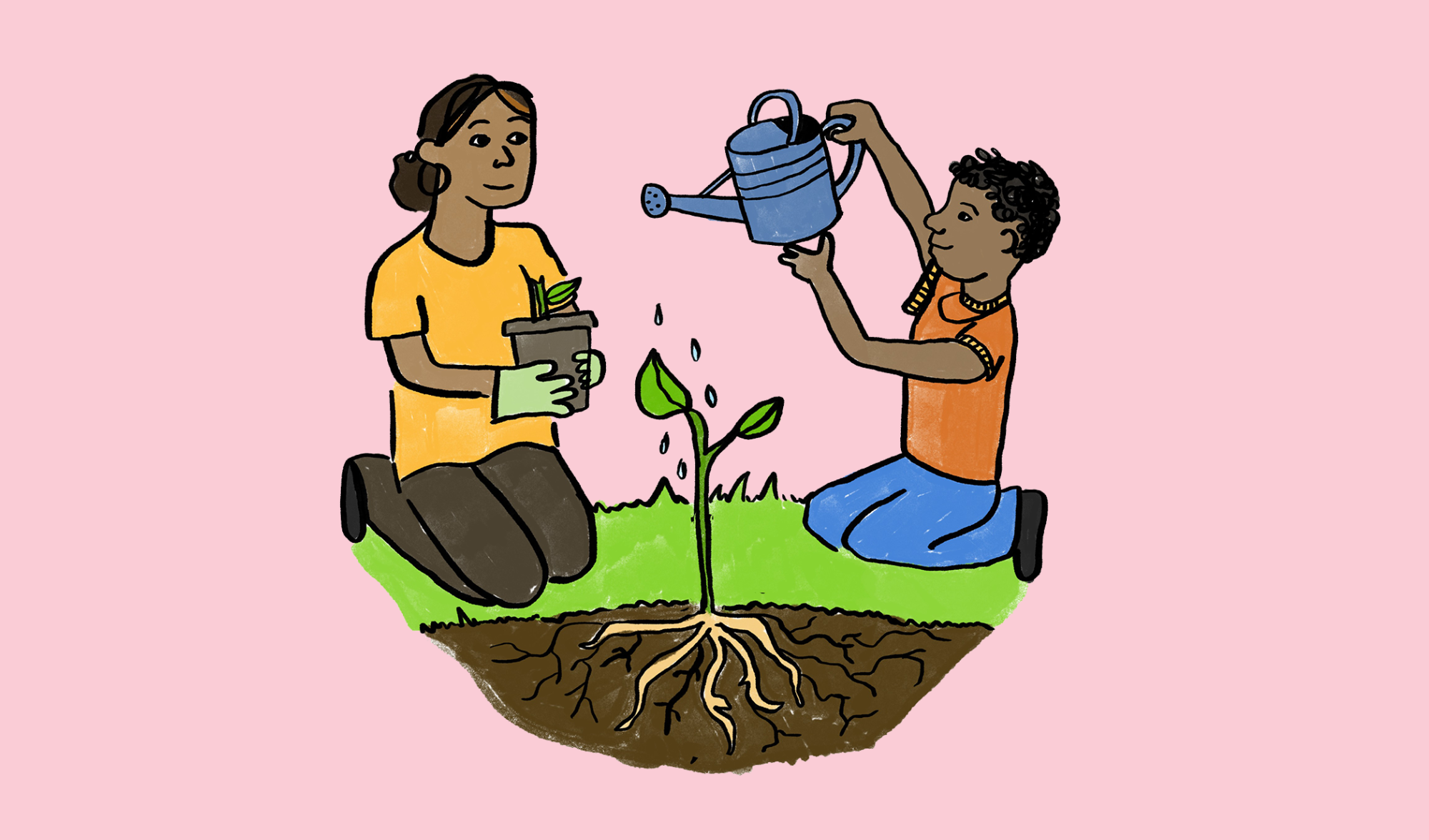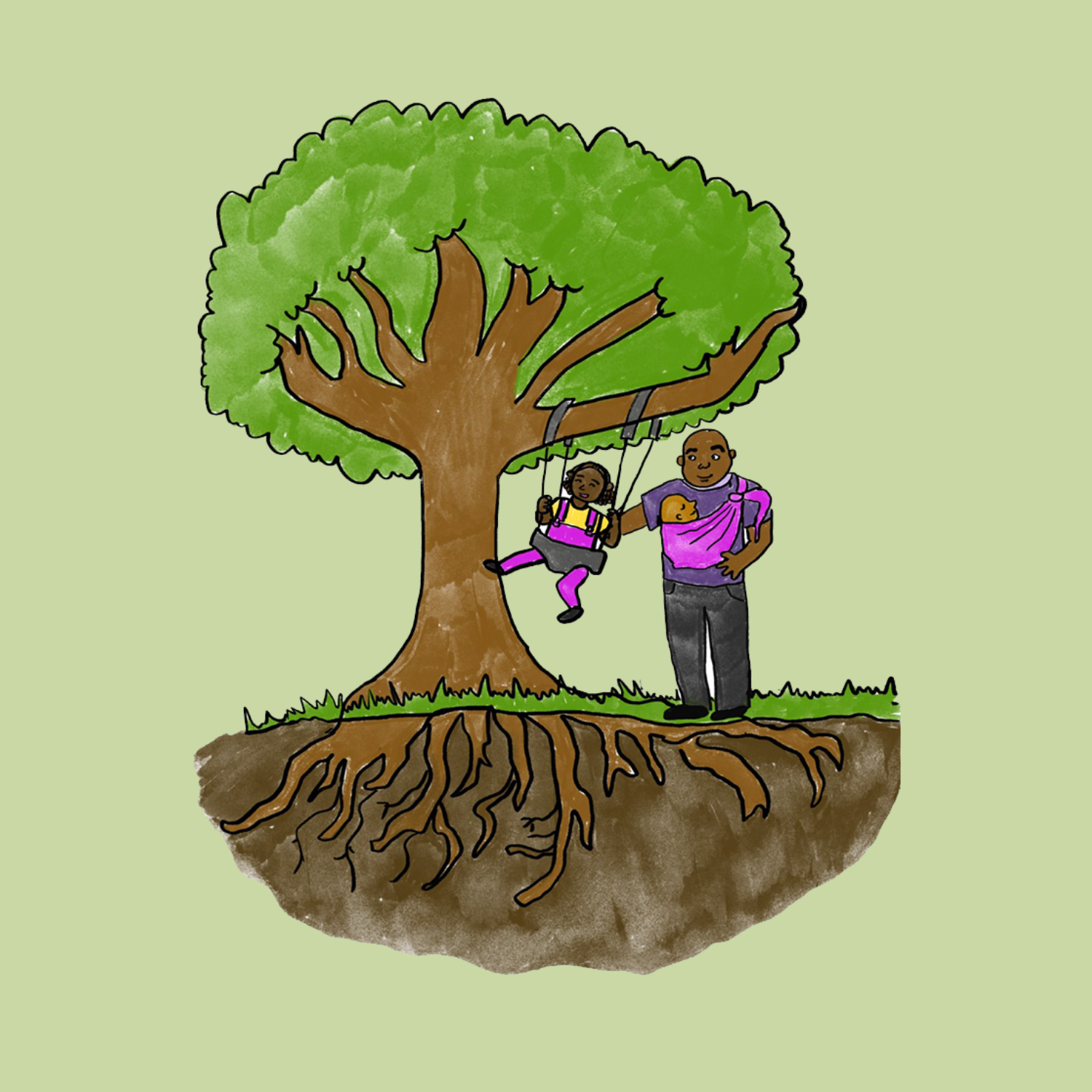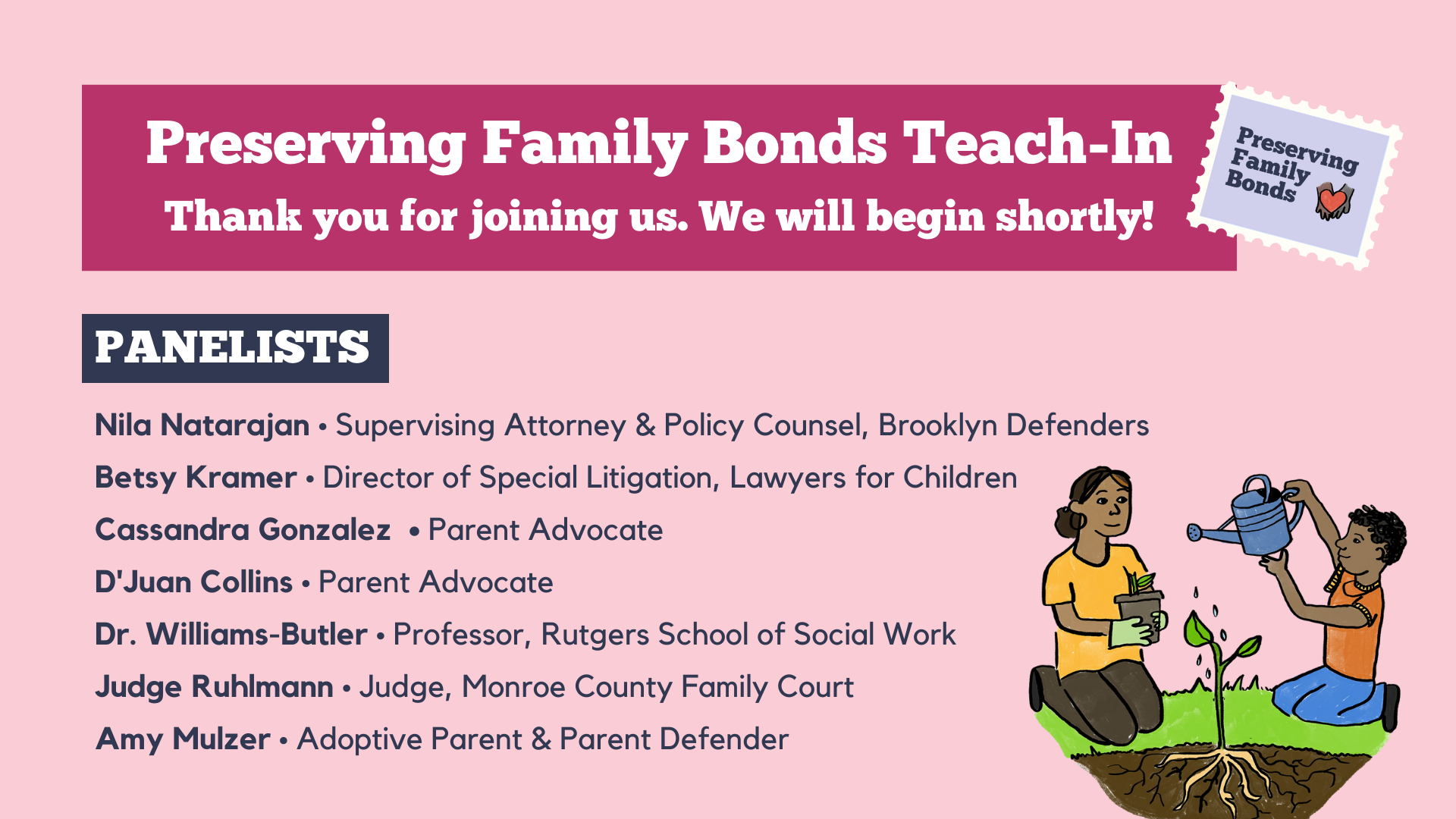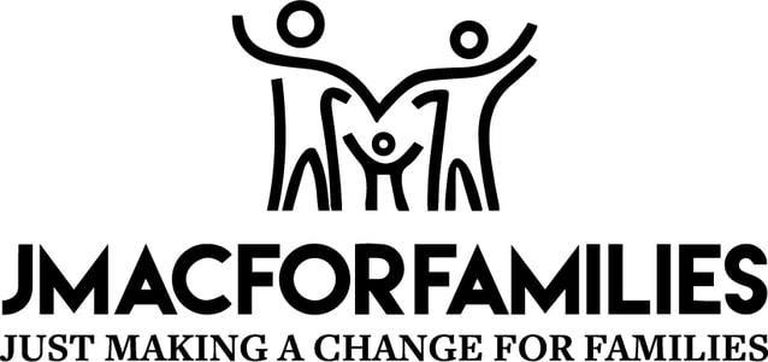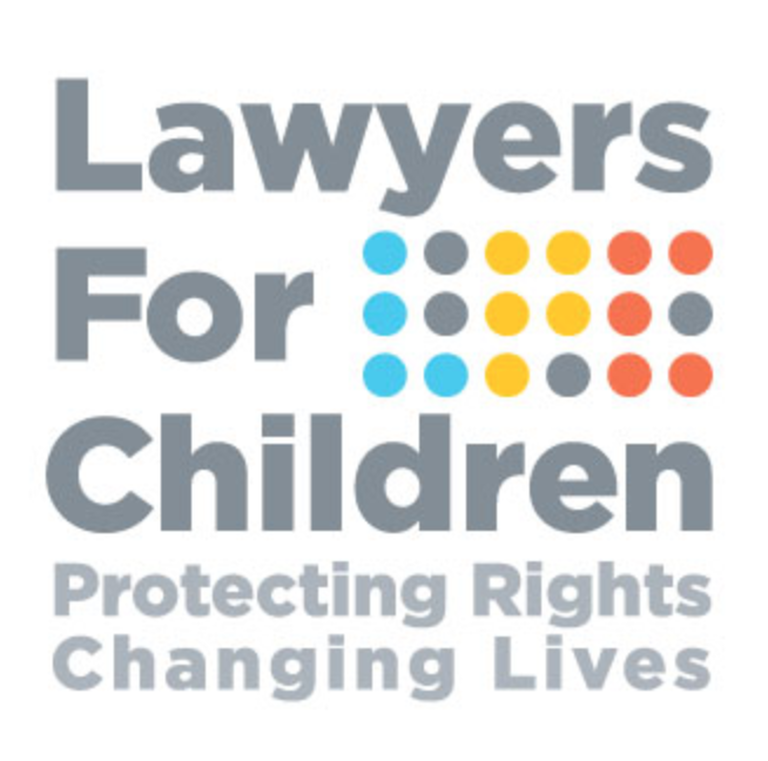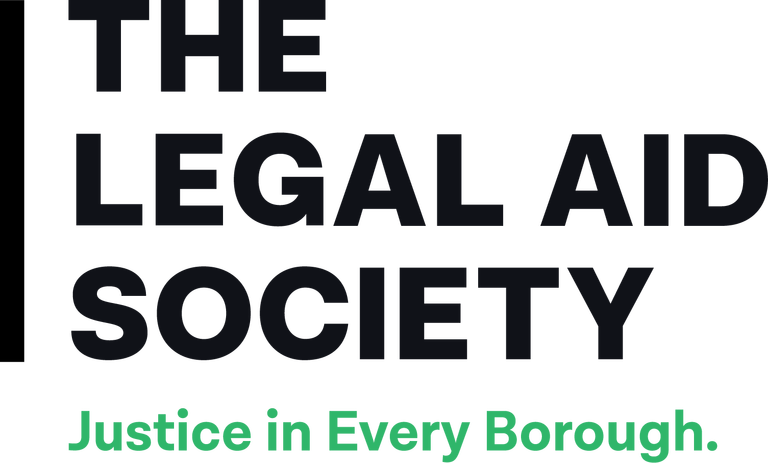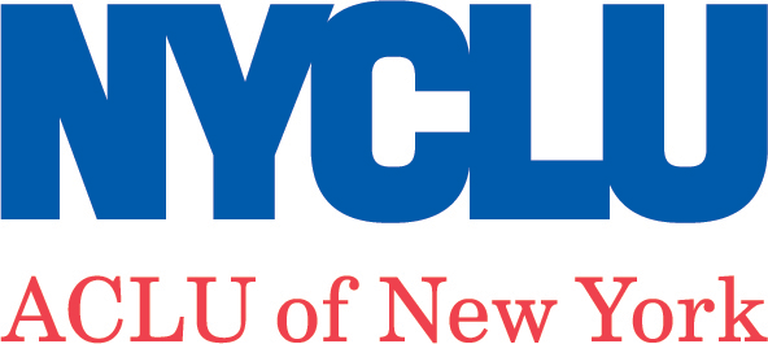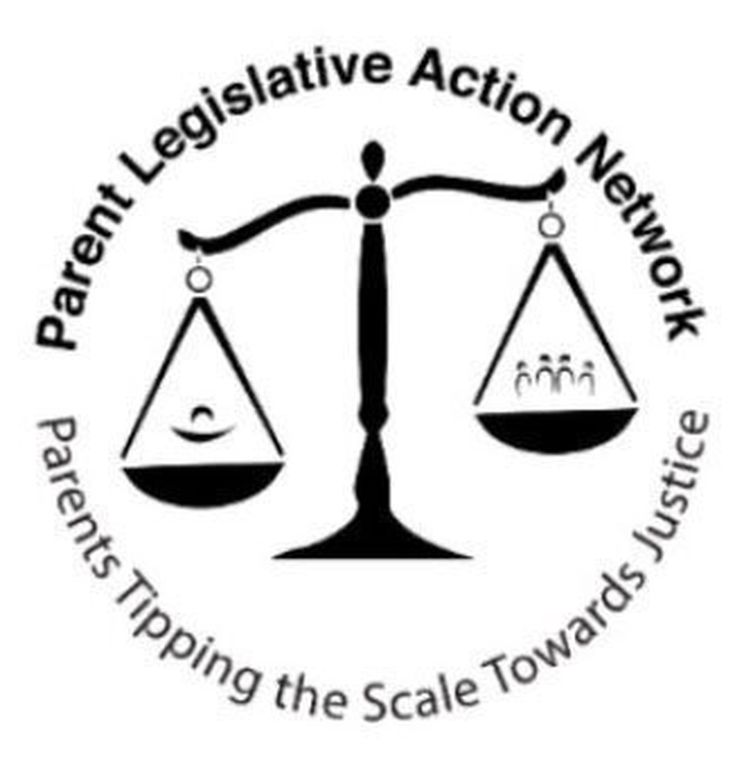About the Preserving Family Bonds Act
How does a judge determine what outcome is in a child's best interests? In making its determination to order continued contact between a parent and child after the termination of parental rights, a Court may consider a variety of factors in deciding what is in a child’s best interest. The Court may consider the frequency, quality, and consistency of visits between a child and a parent prior to the termination of parental rights; the age of the child; the parents engagement in any supportive services; and the relationship between a child and their parent.
What can post-termination contact look like? Contact between a parent and child can take myriad and creative forms, such as monthly visits, visits during important holidays, video and telephone calls, letters, emails, and photographs.
What if a child does not want to see their parents? The Preserving Family Bonds Act does not allow a Judge to order contact between a parent and a child fourteen years or older who does not consent to that contact. In cases involving severe or repeated abuse, post-termination contact cannot be ordered unless the Court has determined that the parent seeking such contact was not the perpetrator of the abuse.
Does this bill interfere with the rights of adoptive parents? The Preserving Family Bonds Act comes into play at the moment the court is considering whether a parent’s rights should be terminated, and well-before a child is adopted. A foster caretaker who hopes to adopt a child is able to participate in this hearing and share their perspective on the best interests of the child. It is important to note that this bill gives great deference to prospective adoptive parents and only allows the court to make a decision over the prospective adoptive parents' objection when the court specifically finds that the objection does not reflect the child's best interests.
What happens if all of the parties agree that post-termination visitation is in the best interests of the child? This bill includes a provision making it clear that an order of post-termination visitation and/or contact can be entered when the parties all consent. Nothing in this legislation prohibits or discourages agreement and orders on consent.

